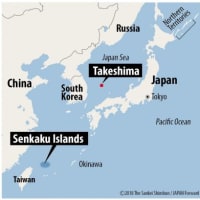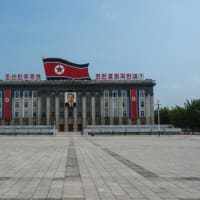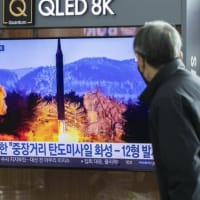Here is a summary of the main opinions of economic experts in Japan.
The Japanese economy has had a tumultuous start to the year, with the rapid spread of the Omicron variant, rising prices, and wild swings in stock prices since the beginning of the year.
I would like to look ahead to this year's economy and consider the issues facing economic policy.
The following are three points that economic experts have raised.
(1) Two concerns that will affect the economy
(2) The future of high prices and its impact on companies
(3) Challenges posed by the confrontation between the U.S. and China
(1)Two Concerns Affecting the Economy
First, let's look at the economic trends and concerns.
This year, Japan's economy is basically expected to be on a recovery track, thanks to the recovery of the face-to-face service industry, economic stimulus measures with fiscal expenditures exceeding 55 trillion yen, and the effects of so-called "revenge consumption".
In late December last year, the government forecasted a relatively high growth rate of around 3.2% for the new fiscal year starting in April, but within just two weeks, dark clouds began to loom over the economic outlook.
This is due to the rapid spread of the Omicron strain.
Government officials have indicated that the impact on economic activities will not be as great as last year, because they have come up with a policy of easing restrictions on activities at restaurants and events on the premise of vaccination.
Nevertheless, the situation will be different if the infection spreads by leaps and bounds and the number of seriously infected patients increases.
The key will be whether we can control the infection and balance economic activities through prompt vaccination and expansion of the inspection system.
Another major concern is the surge in prices of resources and raw materials against the backdrop of the rapid recovery of the global economy and logistical disruptions such as a shortage of containers for transport ships.
Due to these factors, the rate of increase in consumer prices rose to +0.5% last November.
In fact, this figure was pushed down by nearly 1.5 percentage points due to the drop in cell phone bills, which would have amounted to about 2% without it.
This year, too, there will be a series of price hikes on bread, food oil, frozen foods, etc. by the spring.
Price hikes on goods and services that are essential for daily life, including utility bills, will reduce the amount of money that can be spent on other purchases, which may lead to a drop in consumption.
(2) The Future of High Prices and Its Impact on Companies
What will happen to the high prices this year?
While some experts believe that prices will settle down as the disruptions in the supply chain will gradually subside, others are wary of a further rise.
The reasons for this are that the spread of the Omicron strain in many countries may lead to increased restrictions on behavior, a shortage of manpower for production and distribution, which may lead to a shortage of supply and higher wages, and that lack of progress in the development of resources such as shale oil amid the trend toward decarbonization, which may cause energy prices to remain high due to a shortage of supply, and other concerns.
There are also experts who see changes in China from a more long-term perspective.
China, often called the world's factory, has been supplying inexpensive products to developed countries, pushing down prices.
However, as domestic demand increases due to rapid growth, imports of foreign products are also expanding.
In other words, China has become more of a demander than a supplier, and this is a factor that pushes up prices.
We also need to be wary of the yen's depreciation, which will push up import prices.
Behind the current weakness of the yen is a move toward monetary tightening in the United States.
With prices rising to 6.8%, FRB, the central bank, is expected to lift its zero interest rate policy and raise interest rates this year in order to curb inflation.
In addition, the minutes of last month's meeting, which were released on January 5, showed that there was an opinion that the FRB should sell government bonds and other assets that it has been purchasing in order to supply the market with ample funds, and that it should take steps to reduce its asset holdings, which has further raised long-term interest rates in the United States.
Under these circumstances, it is possible that there will be a stronger move to sell the Japanese yen, which continues to have a negative interest rate policy, and buy dollars, which can be expected to generate more interest income.
If the yen continues to weaken, raw materials imported from overseas will become even more expensive, pushing up prices even further.
Higher prices will also affect corporate management.
(3) Challenges posed by the confrontation between the U.S. and China
Finally, I would like to consider the issues of trade policy.
On the first of this month, the RCEP regional comprehensive economic partnership came into effect in 10 of the 15 participating countries, including Japan, China and the ASEAN countries.
The RCEP is a huge economic zone that accounts for about 30% of the world's population and GDP. For Japan, this is the first economic partnership agreement with China and South Korea.
In the future, the percentage of industrial products exported from Japan that will be duty-free will increase from 8% to 86% in China and from 19% to 92% in South Korea, which will bring significant benefits to Japan.
On the other hand, Japan also has the task of making the rules of free trade more widely known among its member countries, including China.
However, the United States is not a member of the RCEP.
This year, the U.S. is planning to launch a new economic partnership framework with Indo-Pacific countries that share the values of freedom and democracy.
It is said to be aiming to strengthen the supply chain of important products and to create common standards for export management of advanced technologies.
As China strengthens its presence in the Asia-Pacific region, not only through the RCEP but also by applying to join the TPP, the U.S. aims to counter China by strengthening ties with its own allies and friends.
In this context, Japan needs to strengthen its efforts in two policies.
One is the issue of corporations and human rights.
Last month, the U.S. passed a new law banning in principle the import of all products that are believed to have been produced using forced labor in China's Xinjiang Uyghur Autonomous Region.
It is expected that Japanese companies will come under greater scrutiny in the future.
Companies will be required more than ever to make sure that there are no human rights violations in their supply chain, i.e., in the purchase of raw materials, procurement of parts, and manufacturing process of their products.
The second is to strengthen economic security.
As the struggle for supremacy over high-technology intensifies between the U.S. and China, there is an urgent need to prevent the outflow of advanced technology and to ensure the stable securement of semiconductors and other critical materials, which have become difficult to procure due to the Covid-19 pandemic, either domestically or among countries that share the same values.
The Japanese government is expected to submit bills related to this issue to the current Diet.
Effective measures are required, while taking care not to cause sudden changes in the business environment of companies.
(End)



















